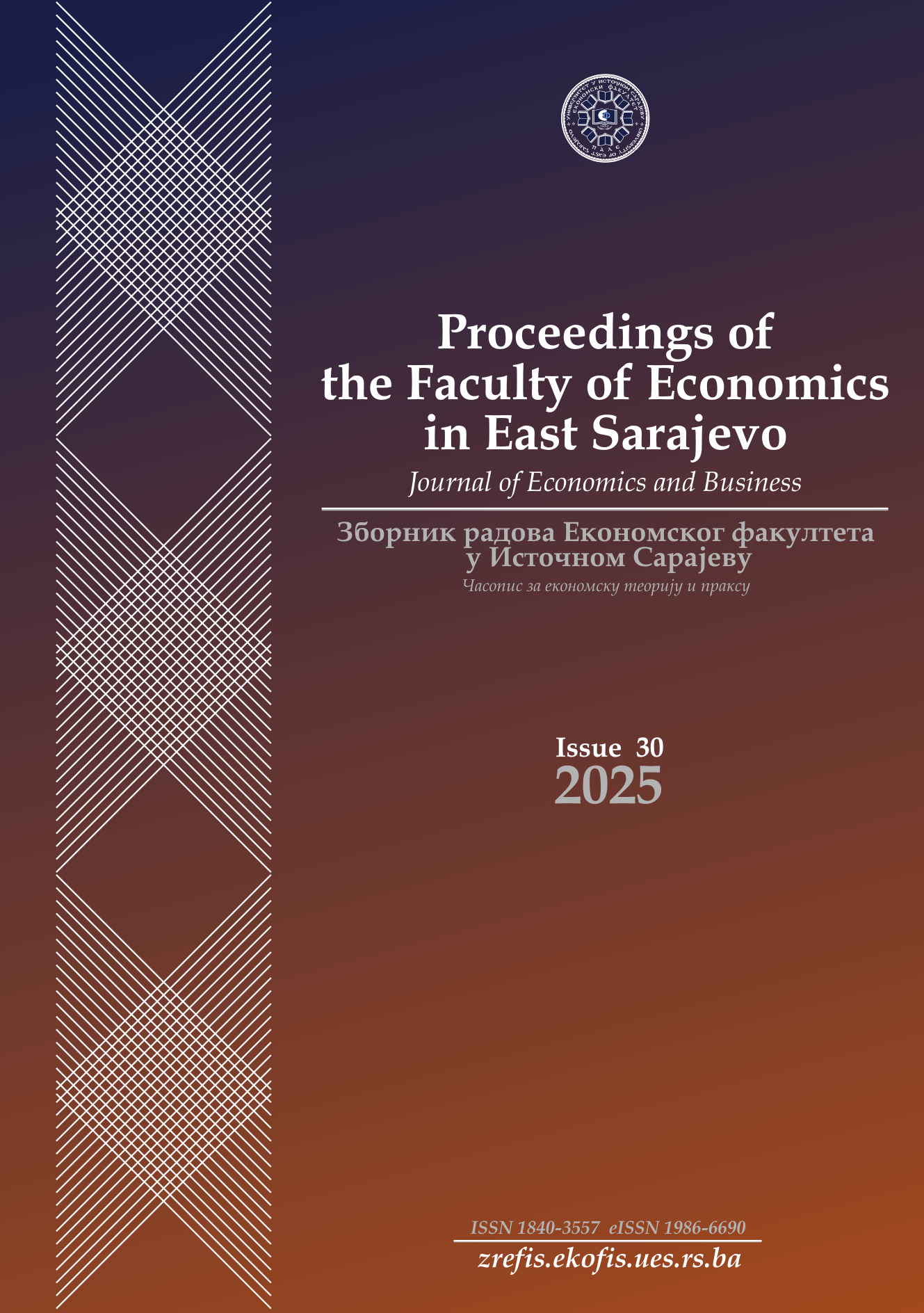TRADE LIBERALIZATION AND POVERTY IN ECONOMIC COMMUNITY OF WEST AFRICAN STATES
DOI:
https://doi.org/10.7251/ZREFIS2530023OAbstract
This study investigates the relationship between trade liberalization and poverty reduction within the ECOWAS region, based on the premise that economic growth can serve as a pathway to poverty reduction. The primary objective is to evaluate the influence of trade liberalisation poverty levels, incorporating macroeconomic and institutional variables to capture a broader context. Using a dynamic panel data model, the study employs annual data across ECOWAS countries, specifying poverty as a function of trade liberalisations, per capita GDP, exchange rate, education, and institutional quality. Unit root tests, cross-sectional dependence assessments, and multicollinearity checks were conducted to ensure model validity. Empirical results reveal a significant negative relationship between trade liberalization and poverty, implying that increased trade liberalisation is associated with poverty reduction. However, higher per capita income and better institutional quality also correlate with reduced poverty, whereas the exchange rate shows a positive link with poverty, indicating potential inflationary pressures. Education shows an inverse but statistically weak association with poverty. The findings highlight disparities in trade flow among ECOWAS countries, reflecting varying degrees of integration with the global economy. Based on these results, the study recommends tailored trade policies that promote inclusivity, enhance institutional frameworks, and foster human capital development. Strengthening education systems and ensuring macroeconomic stability are essential to maximize the poverty-reducing benefits of trade liberalization in the region.

